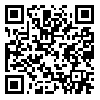Volume 13, Issue 2 (7-2018)
MGj 2018, 13(2): 235-246 |
Back to browse issues page
Download citation:
BibTeX | RIS | EndNote | Medlars | ProCite | Reference Manager | RefWorks
Send citation to:



BibTeX | RIS | EndNote | Medlars | ProCite | Reference Manager | RefWorks
Send citation to:
Asghari B, Dashab G. Comparision of accuracy of genomic breeding values for immunity characters by different Baysian approaches. MGj 2018; 13 (2) :235-246
URL: http://mg.genetics.ir/article-1-60-en.html
URL: http://mg.genetics.ir/article-1-60-en.html
Abstract: (2552 Views)
The aim of this study was to assess the accuracy of QTL mapping and genomic predictions for three immunity traits including B cell, CD4 and CD8 based on two Bayesian statistical methods such as Cπ, LASSO and GBLUP in 1094 heterogeneous mice. Genotype data set was composed of 1094 individuals with 12226 polymorphic loci (SNPs) on 19 autosomal chromosomes, after the quality control filtering of all genotyped SNPs data, for call rate per individual and per SNP and minimum all frequency. The seven statistical model to exploring of additive and dominance effects of SNPs as well as polygenic effect of animal was used to estimate SNPs effect and variance components. SNPs effect was corrected with Bonferoni methods and accuracy of genomic breeding values for all of traits were evaluated using cross-validation. Final QTL mapping with seven model and three statistical methods showed that 10, 6 and 7 on 1, 3, 5, 7, 8, 9, 12, 14, 16, 17 and 18 chromosomes for B cell, CD4 and CD8 traits, respectively. The results of this study showed that by added to additive and dominant effects of markers with the animal's polygenic effect, the accuracy of genomic predictions is increased. Also, statistical methods were used a factor affecting the accuracy of the genomic pridictions. The highest accuracy of genomic predictions for all of traits was related to seven model and Bayesian LASSO. The difference between these statistical methods was related to the background of genetic architecture, as well as assumptions that are considered for the variance of marker effects.
Keywords: Dominace effects, Genomic pridiction, Statistical methods, Immunity traits, Quantitative trait loci
Type of Study: Applicable |
Subject:
Subject 02
Received: 2017/02/22 | Accepted: 2018/10/7 | Published: 2019/10/1
Received: 2017/02/22 | Accepted: 2018/10/7 | Published: 2019/10/1
Send email to the article author
| Rights and permissions | |
 |
This work is licensed under a Creative Commons Attribution-NonCommercial 4.0 International License. |






